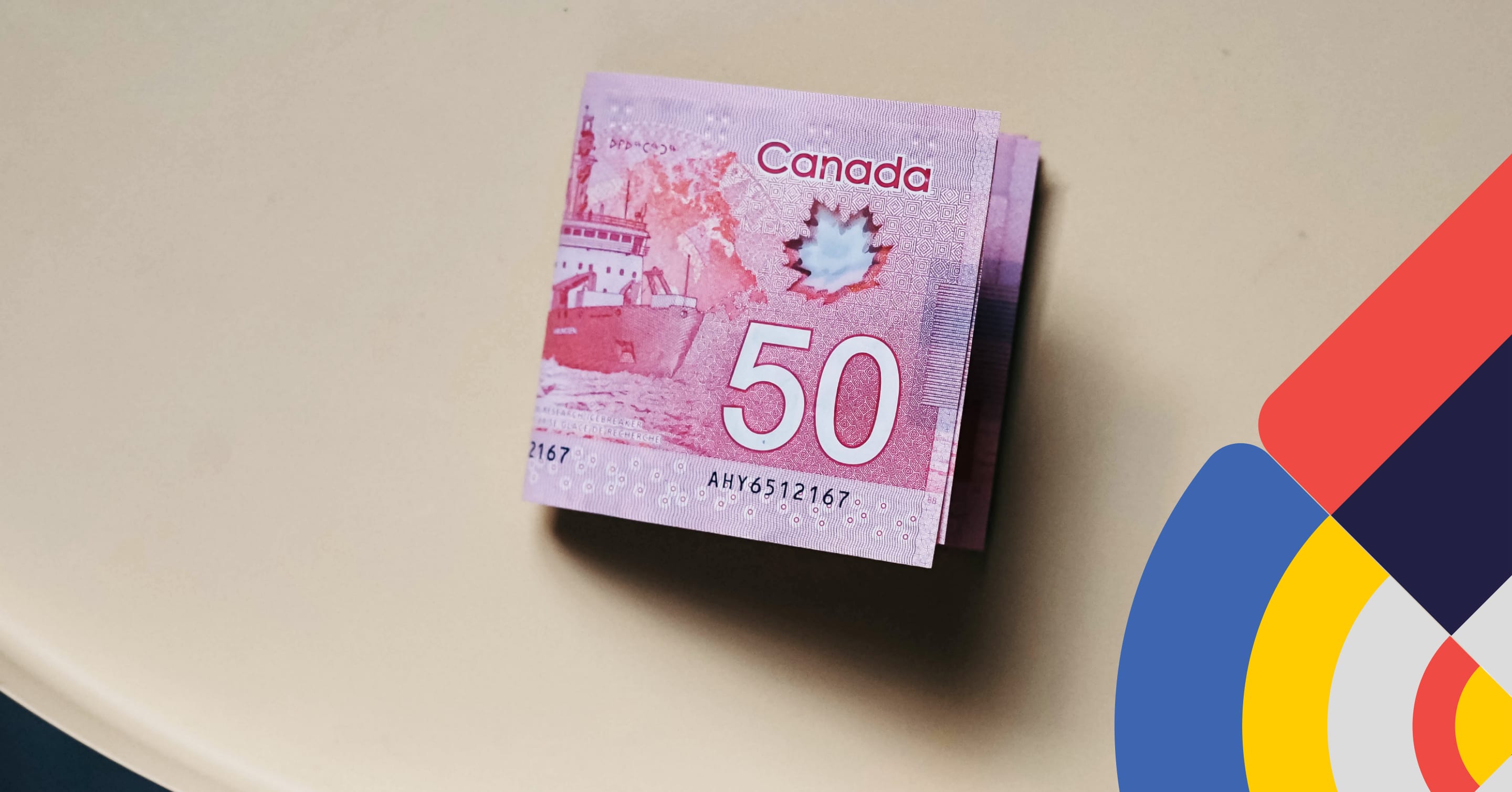Home Buying #Loan Types #Mortgage Basics
Home Buying #Loan Types #Mortgage Basics
6 Things You Need to be Preapproved for a Mortgage

Table of contents
If you’re thinking about buying a home, it’s important to first determine how much you can comfortably afford to spend. Before granting you a loan, your financial institution will take into account many factors to determine the amount they’re willing to lend to you. By seeking preapproval for your mortgage before you start house-hunting, you’ll avoid developing unrealistic expectations and falling in love with a property that’s beyond your means. At nesto, we’ll arrange your preapproval so you can head out home shopping as soon as possible.
Tip: Before falling in love with a potential new home, make sure you get preapproved. It can save you time, increase negotiating power, prevent disappointment and above all, instill home buying confidence.
Key Takeaways
- Prequalification provides you with an estimate of how much you can expect to borrow to finance your home after your lender conducts a preliminary assessment of your financial situation
- A preapproval is a conditional commitment by your financial institution to grant you a specific amount of money at a certain interest rate based on your qualifications
- Being preapproved for a mortgage can save you time, increase negotiating power, prevent disappointment and above all, instill homebuying confidence
What does prequalification mean for mortgage applicants?
Prequalification provides you with an estimate of how much you can expect to borrow to finance your home. nesto – as your lender – will conduct a preliminary assessment of your financial situation to determine how much they’re comfortable loaning you. Your prequalification can be granted fairly quickly, there is generally no cost to you, it doesn’t affect your credit score and can be helpful when it comes time to make an offer. It also provides you with confidence that you’re searching for an affordable home.
Being prequalified is only a general indication that you could be approved for a mortgage if you were to apply – it’s not a guarantee of financing or loan approval. Additional information and documentation must meet your lender’s criteria to assess your ability to repay the mortgage so it’s best to avoid making any definitive decisions based on your prequalification status. It’s much better to wait until you get preapproved.
Important: Being prequalified is only a general indication that you could be approved for a mortgage if you were to apply – it’s not a guarantee of financing or loan approval.
Requirements for preapproval in Canada
Not to be confused with a prequalification (see above), a preapproval is a conditional commitment by your financial institution to grant you a specific amount of money at a certain interest rate based on your qualifications. Knowing the amount of mortgage for which you qualify, estimating your monthly mortgage payments and locking in the rate will allow for a smooth buying process and efficient mortgage transaction.
It’s important to note that the amount for which you’re preapproved is likely the maximum you’ll receive but doesn’t guarantee that you’ll be granted a mortgage loan for that amount. The final approved mortgage will depend primarily on the value of your home and the amount of your down payment. In addition, the mortgage rate you’re offered during the preapproval period is only guaranteed for a set period of time – typically 90-120 days.
Important: The amount for which you’re preapproved is likely the maximum you’ll receive but doesn’t guarantee that you’ll be granted a mortgage loan for that amount.
In order to evaluate whether you’ll be granted preapproval and, in turn, the amount for which you qualify, your lender will assess a number of important factors based on key documentation. These may vary based on your unique situation, the type of home you’re buying or from one lender to the next.
Get approval on your low rate today
No big bank bias, just commission-free experts ready to help you.
Tip: The more information you can provide upfront, the better your chances of a preapproval turning into an actual approval when the time comes.
The most commonly requested documents include the following:
Identification
While this may seem fairly basic, verifying you are who you say you are represents a critical step in the preapproval process. Identity theft, whereby your personal information is stolen or compromised, is a major issue and occurs all too often. Your lender will, therefore, require you to provide government-issued ID such as a driver’s licence or passport showing your name, address and date of birth.
Employment verification
To ensure you’re able to make your monthly mortgage payments, your lender will want to know that you have stable employment. You’ll be required to provide a letter from your employer indicating your position and the length of time you’ve been employed with the organization. If you’re self-employed, you’ll need to provide your Notice of Assessment for the last two years and may be required to provide additional details such as the nature of the business, balance sheets, statement of business activity and references.
Proof of income
Your lender will also want to validate that your income has been steady for at least two years. You may be required to provide income tax statements and/or paystubs. If you’ve had any significant gaps in employment or demonstrate job instability, you may find a lender is less likely to grant you a mortgage. If you’re self-employed, your lender will want to see recent tax returns or other proof that demonstrates history of your ability to generate sufficient income to make your mortgage payments. You’ll also want to provide proof of any additional sources of income such as salary from a second job, commissions, bonuses or investment interest.
Proof of assets
Assets consist of anything you own that has a monetary value, and can be easily liquidated and turned into cash. Examples include: money in your savings or chequing accounts; investments; properties; vehicles, including cars, boats and RVs; and other valuables such as jewelry and artwork. Your lender will ask to see details of your assets and their corresponding values to determine your total asset value. It’s important for them to know that, should you ever fall on hard times, you have options to access funds and, therefore, continue to make your payments.
Credit score
A credit score is used by lenders to determine your creditworthiness and plays a key role in their decision to approve or deny your loan request. Your credit score is based on your credit history, which is a record of your debts and ability to repay them. This information is contained on your credit report, which outlines any open accounts, repayment history, total debt levels and any bankruptcy or collection issues. Maintaining a healthy credit history will provide credibility and, therefore, influence your ability to obtain a loan. Your credit score can be obtained from Canada’s two credit-reporting agencies, Equifax and TransUnion. If your credit score is low, under 650 for instance, you’ll likely have difficulty obtaining a traditional mortgage. You could be refused outright, receive approval but for a lower amount or with a higher interest rate, be required to make a larger down payment, or be requested to find a suitable co-signer on the mortgage. It’s also good practice to monitor your credit report on a regular basis to ensure it’s up to date and doesn’t contain any erroneous information. We can offer you helpful tips to boost your credit score leading up to your mortgage approval.
Other documentation
Depending on the lender, you may also be required to provide additional details such as:
- Bank account information (eg, funds to cover closing costs, legal fees, etc)
- Source and amount of down payment
- Outline of monthly expenses
- Spousal or child support payments
- Student loans
Other articles in this guide: “Mortgage & Purchase Process in Canada”
- Home Inspection Fees & Services in Canada
- House Deposit vs Down Payment
- Mortgage Approval Process
- Choosing a Mortgage Provider – Banks vs Brokers
Ready to get started?
In just a few clicks, you can see our current rates. Then apply for your mortgage online in minutes!















